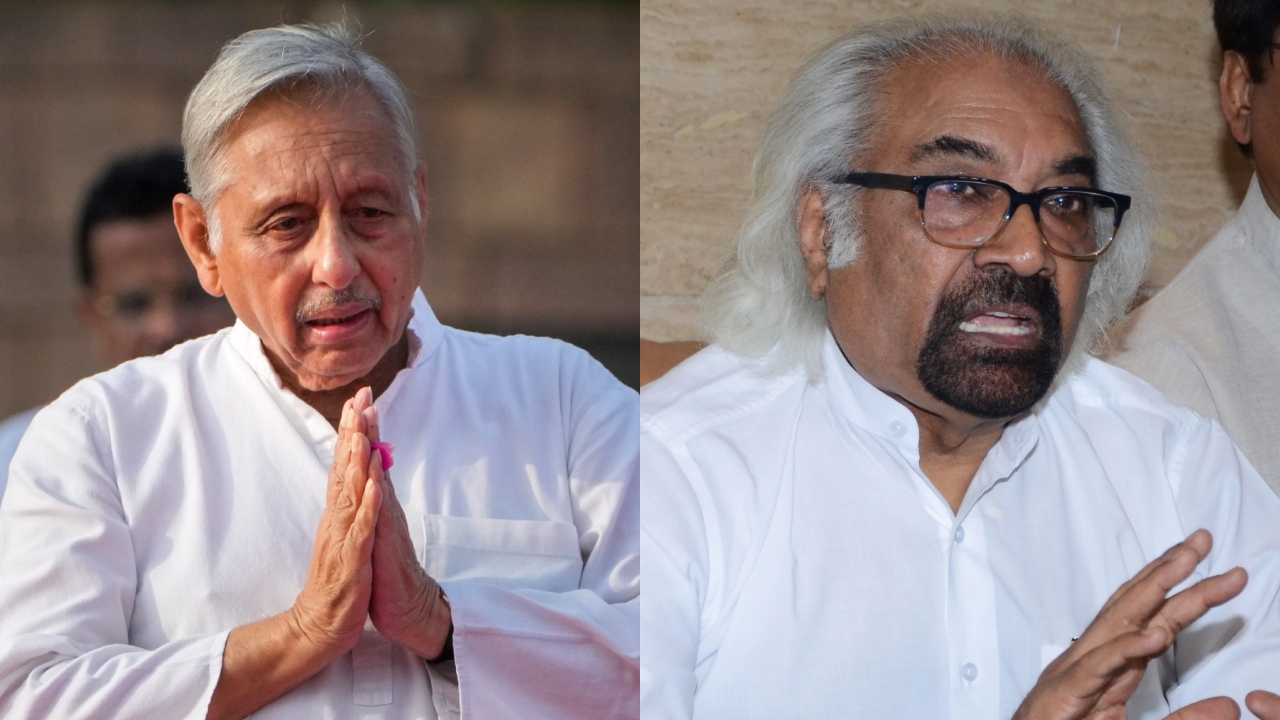
Congress leaders Mani Shankar Aiyar and Sam Pitroda.
Credit: PTI Photos
New Delhi: One might consider it ironic, but *two Gandhi loyalists*, often praised as "brilliant minds" or possessing a "heart in the right place," have inadvertently caused trouble for the Congress with their remarks during the last three Lok Sabha elections since 2014.
These loyalists, who began their political careers alongside Rajiv Gandhi in the 1980s, ended up inadvertently providing the BJP with opportunities to reshape the narrative of the campaigns. While several leaders have made controversial comments during election seasons, only Mani Shankar Aiyar and Sam Pitroda managed to significantly alter the tone of the campaign.
If Aiyar sparked controversy in 2014, it was Pitroda's remarks in 2019 and 2024 that forced the Congress to redirect its resources to address the fallout.
One could argue that Aiyar's "chaiwala" comment about Modi was a low blow, while Pitroda brought forth unpopular opinions during elections, aside from what his supporters consider a "misguided" remark on the anti-Sikh riots. However, the timing of their comments was what ultimately proved detrimental.
Among other factors, one of the central themes of the BJP's campaign in 2014 revolved around Aiyar's "chaiwala" comment. In a three-minute byte to a video agency in January 2014, the veteran Congressman said, "Modi will never become Prime Minister in the 21st century. If he wants to come and sell tea here (AICC session), we will make some space for him.”
In less than four months, Modi assumed the office of Prime Minister, decimating the Congress to a historic low after capitalising on the 'chaiwala' theme. Aiyar returned to haunt the Congress in December 2017 by calling Modi a 'neech aadmi' (lowly person), just two days before the Gujarat polls.
He defended his comments two years later in an article in May 2019, amidst the Lok Sabha elections.
One cannot label the Chicago-based Indian Overseas Congress chief Pitroda as a motor-mouth, but he did stir triple trouble during the Lok Sabha elections in 2019. A technocrat, Pitroda is the mastermind behind India’s telecommunications revolution.
First, he seemed to trivialize the Pulwama terror strike and Balakot surgical strike: “Attacks happen all the time. Attacks happened in Mumbai and we could have reacted and sent our planes but that’s not the right approach according to me…That’s not how you deal with the world. Eight people come and do something and you don’t jump on the entire nation. I don’t believe that way.”
In a campaign where ‘muscular nationalism’ was at its zenith, Modi and other BJP leaders seized upon it.
Then came his suggestion that the middle class should be prepared to pay more taxes so that Congress could fund its ‘NYAY’ scheme. Faced with backlash, Congress deployed former finance minister P Chidambaram to clarify that the party had no such plans.
Congress received a severe blow when Pitroda responded to questions about the anti-Sikh riots just before the polls in Punjab with 'hua to hua' (if it happened, it happened). "What about 1984 (riots) now? Talk about what you did in the last five years. What happened in 1984 has happened. So what? You were voted to create jobs. You were voted to create 200 smart cities. You didn't even do that. You did nothing, so you keep talking about here and there."
Congress president Rahul Gandhi was unequivocal in his response, stating that what Pitroda said was "absolutely wrong". "I told him this over the phone, I told him what he said was wrong, he should be ashamed and apologise publicly," Rahul said at a rally.
As Congress was fine-tuning its election strategy, Pitroda once again sparked controversy in June last year with his remarks that temples wouldn't create jobs when questioned about the Ram Mandir. "No one talks about these things. But everyone talks about Ram, Hanuman, and Mandir. I have said that temples are not going to create jobs," he stated at an event in the US in Rahul's presence. Rahul faced criticism as the BJP accused him of being 'Hindu-phobic'.
At a critical juncture when the Congress was leading the 'save BR Ambedkar’s Constitution' campaign, Pitroda once again put the party in a delicate position by endorsing an article by Sudhindra Kulkarni earlier this year. The article argued that the primary credit for the Constitution should be attributed to Jawaharlal Nehru.
During the ongoing election season, Modi received the perfect ammunition when Pitroda mentioned inheritance tax and insisted that these are the kinds of issues people should debate.
This occurred just as the Congress was meticulously crafting its ‘Nyay’ guarantees. Although the party swiftly distanced itself from Pitroda's comments, Modi and his allies exploited them to the fullest, sometimes twisting them to their advantage.
On the surface, Pitroda's remarks seemed innocuous, but many Congress leaders viewed them as a distraction.
While Aiyar is often associated with intellectual arrogance, Pitroda was aiming to spark a debate on issues, albeit at the wrong time.
